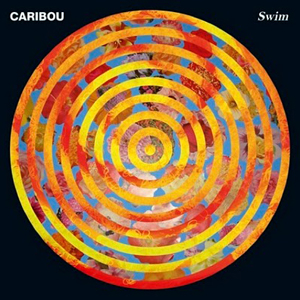Caribou Swim
The ever-growing mass of electronics heard on “Niobe,” the closing number from Caribou‘s last album, […]

The ever-growing mass of electronics heard on “Niobe,” the closing number from Caribou‘s last album, Andorra, could be retroactively interpreted as a transition from the summery psych-rock explorations of Dan Snaith’s past to the synthesized indie-pop found on Swim, his fifth full-length. While the Canadian producer previously used electronics and modern technologies to craft and adorn his intimate bedroom-born songs, his latest album pulls those sensibilities into the forefront—and with captivating and brilliant results.
“Odessa” opens Swim, and stands as the closest semblance of connection with Snaith’s past efforts. Though the song is inherently funky in its rhythms and melodies, as if it were built solely for the dancefloor, the mysterious samples and lilting flute sounds woven into “Odessa”‘s repetitious hook could’ve been lifted from Andorra‘s “Desiree.” From that point forward, however, everything has changed. Dubstep, UK funky, house, and wonky bass all weave their way into Swim‘s tapestry. The brilliant instrumental workout of “Bowls” is rooted in deep bass, off-kilter percussion, and a staccato synth melody that comes and goes at its leisure. Other standouts, like “Leave House” and “Hannibal,” take Caribou’s psych- and garage-rock inclinations and warp them into vast electronic soundscapes that somehow double as catchy, danceable pop songs.
Much like Four Tet’s recent switch in focus towards club-friendly sonics, Caribou’s Swim leaps into fresh, uncharted territory for the producer, but nonetheless retains the artist’s unmistakably inviting and lovable style. This change could be viewed as divisive for some, but any fan of soulful vocal melodies and eclectic instrumentation sized to fit an evolved pop format will find Swim a classic milestone in Caribou’s career.

